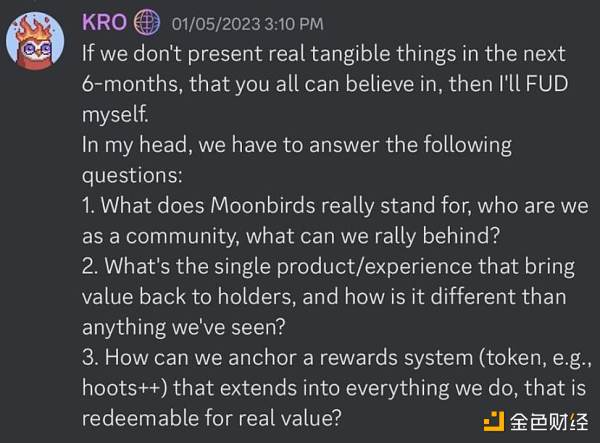How to invest in half? Where do companies go public? Where is the capital? Blockchain First Trader Decrypts For You | Babbitt Industry Lesson
Did you know that blockchain and cryptocurrencies are opportunities or traps in the eyes of traditional capital markets?
On the evening of Monday (March 23), the second phase of the Babbitt Industry Class, "Financial Trap or Wealth Treasure? —— "Blockchain and Finance" Study Week officially opened. Zhang Li, vice president of Canaan Technology, took the lead in sharing the "Capital Market History of Blockchain".
Zhang Li has previously worked at PricewaterhouseCoopers, Guotai Junan's M & A Department, and has served as a director of several listed companies. After joining Jianan Yunzhi, she participated in the listing of Jianan Yunzhi and continuously ran in the global capital market. She is the real trader behind the "blockchain first share".
In the two-hour lecture, she not only analyzed the global mining landscape and the investment opportunities brought by the halving of bitcoin, she also took Jia Nan Yunzhi as an example to explain in detail some ideas on how blockchain companies go public.
- Smart contract backdoor unveiled: It's not just hackers who steal money, the "one-click coin" platform has hidden backdoors
- Research | How does blockchain technology empower digital agriculture?
- Introduction | Blockchain Project Financing Tool: SAFT
In addition, she is an extremely rare cross-border between the traditional capital market and the blockchain capital market. She unveiled the mystery of blockchain investment from the capital level, allowing students to see that the niche market of blockchain is larger. Opportunities and pitfalls in the eyes of traditional, high-volume traditional investors.
The following is a summary of the content of this course, and the detailed content can be viewed in the course playback: "Capital Market History of the" Blockchain First Share ""
North America OR China, where to find investment for blockchain projects?
North American digital currency-related industries have a relatively high degree of capitalization, especially in Canada. Many North American mines have landed in the Canadian Toronto Exchange, such as Bitfarm, Argo, DMG, etc. In the United States, the SEC supervises currency as a class of financial assets, and the capital market is relatively cautious. However, there are also one or two listed mining companies in the United States. However, after the listing, they changed their main business to be currency-related to obtain capital. Market attention.
In China, the Shenzhen Stock Exchange has launched the China Blockchain 50 Index, which involves banking, speculation, games, security, securities, etc., among which the alliance chain, supply chain finance and cross-border payment are the three most popular application scenarios. However, the companies in the Blockchain 50 Index mainly combine blockchain technology with terminal technology. I personally believe that concepts are the main focus, not that significant technological progress has been made.
In general, the North American capital market is relatively friendly to emerging companies, and China mostly expands the concept of blockchain for listed companies. The concept is stronger than the substance.
The three major stock markets compete. Where will the blockchain companies go public?
In the specific listing process, we have experienced A shares, Hong Kong shares and US stocks, and summarize their respective characteristics.
A-share: It is more traditional. It is time-dependent, and political and compliance factors must be considered. But A-shares are a seller's market. There is no worry that no one buys a good concept. Because blockchain becomes a national policy in 2019, this may be some opportunities for blockchain companies.
Hong Kong: Earlier, the registration system was biased. In recent years, A shares have interacted closely with them. Jokingly, they are looking north. In some aspects, they will consult the mainland's opinions on systems and policies. The Hong Kong market is very traditional. The best-selling stocks are traditional industries such as finance and consumption. Hong Kong stocks are a typical buyer's market.
US market: Its regulations require you to be an honest child, and you must disclose the potential risks to investors before you can get a listing ticket. The United States is a liberalized buyer's market. Whether you can go public depends on whether enough investors recognize your business model and future development potential. However, the United States is actually very ignorant of China and it is biased against Chinese companies. And US stocks can go short as currency prices fluctuate, and you may face a lot of legal proceedings.
Coin circle investment vs traditional investment, from fragmentation to bridging
We divide investors into two types: primary and secondary markets. Primary market investors have three characteristics.
First, mainstream institutions have less recognition of blockchain and there are some investments, but the scale of investment is small compared to the size of their management funds, which may be less than 1% -2%. These institutions are more concerned about the underlying technology of blockchain technology.
Secondly, there are too many early-stage funds in the fund structure, and almost none in the middle and late stages.
Third, it is clear that the investment structure is that there are many coins and few shares.
Moreover, we found that the investors in the primary market of the blockchain are basically some VCs (Venture Investment Institutions). The large investment scale is 200 million US dollars, most of which are 10 million US dollars, and several million US dollars. This is actually very small, because the size of traditional funds is often between 10 billion and 100 billion US dollars.
Looking at the currency circle and traditional capital markets, we find that they are extremely fragmented.
Overseas, the coin circle investment and the traditional capital market actually have similar logic, but the domestic split is obvious. Sometimes the currency circle is inevitably suspicious. We believe that this is because the technology and business model are different, and the scenarios are different, but in the end, as the technology iterates, they will become consistent and long-term separation is unrealistic. Jia Nan Yun Zhi is a bridge. We will look at both the currency circle and the logic of traditional capital markets.

The above is about 30% of the highlights of Zhang Li's live lectures. If you want to know Zhang Li's more observations of the capital market and her judgment on cryptocurrency investment during the halving process, you can subscribe to watch the course playback: "Capital Market History of the" Blockchain First Share ""
From March 23rd to March 27th, 7: 30-9: 30pm each night, five financial leaders from the blockchain industry and traditional capital markets, Zhang Li, vice president of Canaan Technology, and Huang Lingbo, partner of distributed capital Tao Rongqi, founder of X-Order, Cai Yan, managing director of NGC Ventures, and Song Shuangjie, founder of Tongtongtong Research Institute, will give lectures in person.
They will not let you memorize complex mathematical models of economics, but will discuss with you the symbiosis and games between blockchain and the financial industry, complex economy, and capital market, and teach you much-needed blockchain finance common sense. Let you fly in the concept, the chaotic blockchain world, always keep awake and correct judgment.
Seize investment opportunities and walk with top big coffee. Click on the link to jump to the subscription now
We will continue to update Blocking; if you have any questions or suggestions, please contact us!
Was this article helpful?
93 out of 132 found this helpful
Related articles
- Blockchain Industry Weekly Report | Ministry of Industry and Information Technology: Guiding the Platform to Enhance New Technology Support Capabilities
- Smart contracts eliminate information asymmetry, build trust, and upend traditional insurance models
- Is there any change in the cooperation between the self-built blockchain team of Zhongzhuang Construction and Yange Information?
- Gates and Li Ka-shing's blockchain business: one in the chain and one in the currency
- Let's talk about DAO from a human perspective
- Dialogue | The epidemic connects everyone more closely to the digital world blockchain makes it more credible
- You "don't need" DAO: What is the necessity of DAO?






